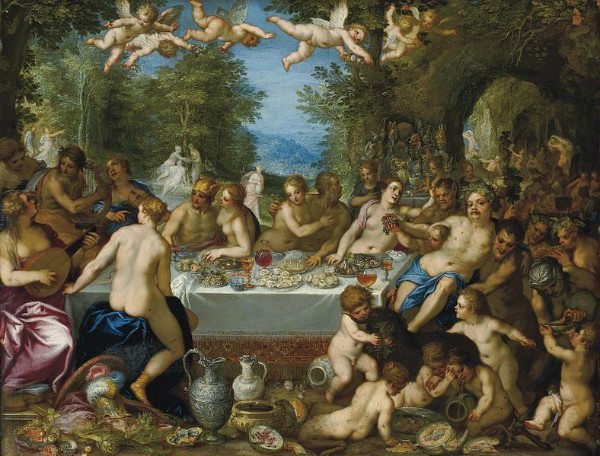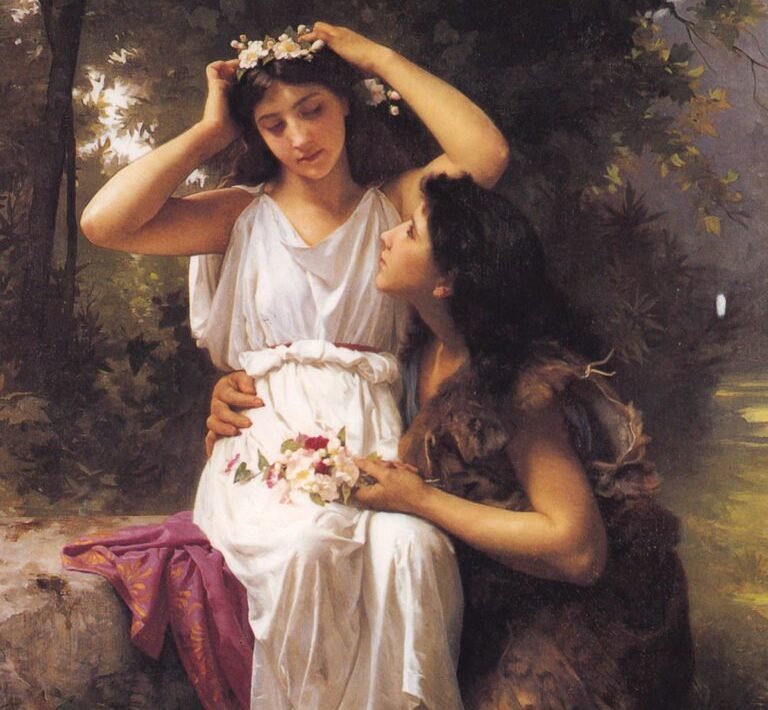Ancient Greece is a civilization of Antiquity of peoples of Greek language and culture developed in Greece and in the western part of Asia Minor, then, following several phases of expansion, in other regions of the Mediterranean basin (Cyprus, Sicily, southern Italy, Egypt, Cyrenaica) and the Middle East (Syria, Palestine), constituting points of establishment as far as Spain and France to the west and Afghanistan (Bactria) to ballast.
This civilization of Greek culture developed during the last part of the “dark centuries” (c. 1200-800 BC), from the rubble of the Mycenaean civilization, and took shape in particular during the archaic era. (c. 800-480 BC), and fully developed during the Classical period (480-323 BC) and the Hellenistic period (323-31 BC). VS.). The Roman conquest (between 220 and 31 BC) marks the end of Greek political independence, but ancient Greek culture retained real dynamism under Roman domination, gradually evolving towards Byzantine civilization from the 4th century onwards. century.

Contents
ToggleFestivals of Ancient, Mycenaean and Hellenistic Greece
Holidays of the month
February 2, 2025 (1 event)
February 2, 2025

On this day, the Greeks celebrated Noumenia, the New Moon marking a new month. The Noumenia is the second day of a three-day family festival held every lunar month – the Deipnon of Hekate, then the Noumenia, followed by the Agathos Daimon. #mythology #myth #legend #calendar #noumenia
February 12, 2025 (2 events)
February 12, 2025

On this day, in ancient Greece, the three days of Anthesteria took place. Both in memory of the dead and of the god Dionysus (ancient), these celebrations are among the oldest Greek rites before their new year at the beginning of March. #mythology #myth #legend #calendar #12February #dionysus #anthesteria
February 12, 2025

On this day, the Greeks honored Aphrodite. Aphrodite is worshiped with incense and, in ancient times, also with offerings of doves. Goddess of love, beauty and fashion, she embodies the renewal of spring and the season of love. #mythology #myth #legend #calendar #February 12 #Aphrodite #Greceia #
February 21, 2025 (1 event)
February 21, 2025

On this day the Little Mysteries of Eleusis began. In order to qualify for initiation, participants sacrificed a piglet to Demeter and Persephone, then ritually purified themselves in the Illisos River. At the end of the Little Mysteries, the participants were considered mystai. #mythology #myth #legend #calendar #February 21 #eleusis
February 22, 2025 (1 event)
February 22, 2025

On this day, the Greeks celebrated the Diasia in honor of Zeus Meilikhios (the wise), which took place in the countryside to welcome spring with solemn but joyful celebrations and also honor the chthonic aspect of Zeus. There were nightly rites with offerings of bread or pastries in the shape of sheep or pigs, sacrifices, feasts, dances and singing of hymns. #mythology #myth #legend #calendar #February 22 #23Anthesterion #Zeus #
February 28, 2025 (1 event)
February 28, 2025

On this day, the Greeks celebrated Chloaia in honor of Demeter Chloê. This festival marks the start of spring and the beginning of the agricultural season. #mythology #myth #legend #calendar #February 28 #demeter #chloé
Cultural areas in ancient Greece
Ancient Greece is a civilization of Antiquity of peoples of Greek language and culture developed in Greece and in the western part of Asia Minor, then, following several phases of expansion, in other regions of the Mediterranean basin (Cyprus, Sicily, southern Italy, Egypt, Cyrenaica) and the Middle East (Syria, Palestine), constituting points of establishment as far as Spain and France to the west and Afghanistan (Bactria) to ballast.
This civilization of Greek culture developed during the last part of the “dark centuries” (1200-800 BCE), from the rubble of the Mycenaean civilization, and took shape in particular during the archaic era (800-480 BCE), and fully developed during the Classical period (480-323 BCE) and the Hellenistic period (323-31 BCE). The Roman conquest (between 220 and 31 BCE) marks the end of Greek political independence, but ancient Greek culture retained real dynamism under Roman domination, gradually evolving towards Byzantine civilization from the 4th century onwards.
Ancient Greek civilization exercised considerable influence in the ancient world, particularly after the conquests of Alexander the Great and during the Hellenistic era when it dominated and influenced the civilizations of the Middle East, where significant centers of Greek culture (Alexandria, Antioch). In the Mediterranean basin, Greek culture played a decisive role, through the influence it exerted on the civilization of ancient Rome, where Greek became the language of knowledge used by the elites, to the point that we speak regularly of “Greco-Roman” culture. It is through this means that many political and cultural productions of the ancient Greek world had a major role in the development of Western civilization.
The Greek world therefore remained very dynamic culturally under Roman domination, and the cities remained the fundamental framework of political and social life. During Late Antiquity (c. 250-700) the Eastern Roman world, of Greek culture, gradually took on its autonomy around Constantinople, which became the capital of the Eastern Roman Empire (or Byzantine Empire) and the new pole culture of the Greek world. Christianization, which led to the disappearance of the Greek polytheistic religion, and the progressive disintegration of the institutions of ancient Greek cities, at the same time, marked the end of ancient Greek civilization.
Greek cultural influence was also exerted on the intellectual life of the medieval Arab-Muslim world, and especially in the West where its status as a reference was confirmed on numerous occasions subsequently, several of the aspects of ancient Greek culture having served as sources of inspiration. Often idealized, it is commonly invested with the status of founding culture for the Western world. The archaeological rediscoveries made on Greek soil since the 19th century and new perspectives on ancient Greek texts transmitted to the modern era have made it possible to deepen and renew the knowledge and understanding of this civilization.





